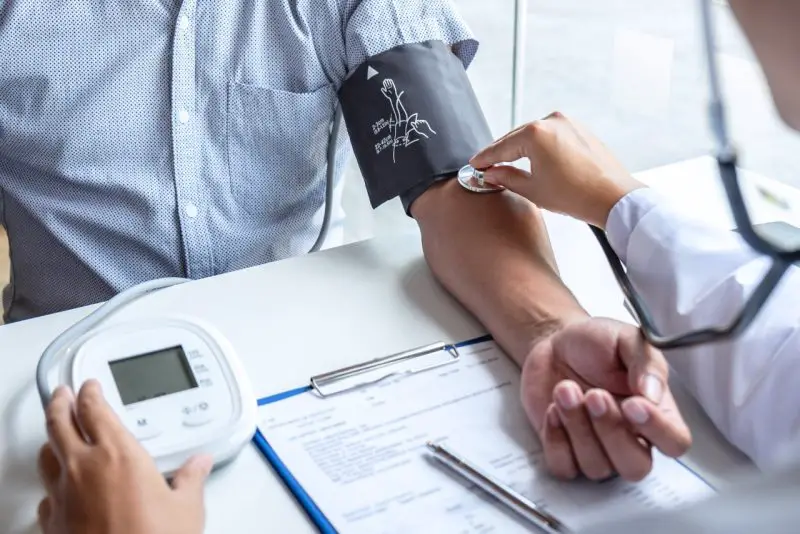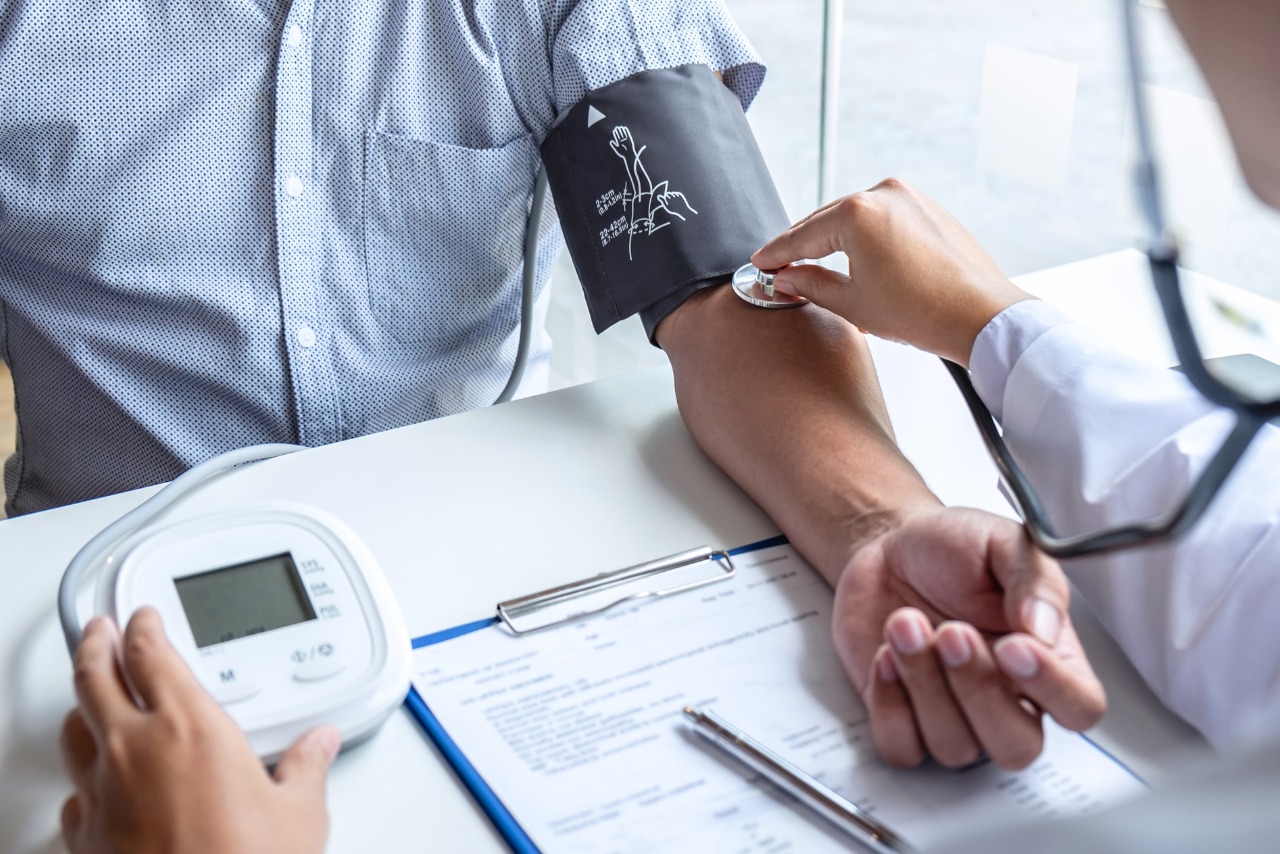Anxiety is a normal emotional response to stress, but when it becomes chronic or intense, it can have physical consequences. One of the most commonly observed effects is a temporary rise in blood pressure. When you’re anxious, your body activates the “fight or flight” response, releasing stress hormones such as adrenaline and cortisol. These hormones cause your heart to beat faster and your blood vessels to narrow, leading to elevated blood pressure levels.
This elevation is usually short-lived. Once the anxiety episode passes, your blood pressure tends to return to normal. However, if anxiety becomes persistent, these temporary spikes may happen frequently enough to strain your cardiovascular system over time. Understanding how anxiety affects blood pressure can help you take steps to reduce both mental and physical stress.
Many people confuse anxiety-related blood pressure spikes with chronic hypertension. While anxiety itself doesn’t cause permanent high blood pressure, repeated stress responses can contribute to long-term cardiovascular risks. Let’s explore in detail how this process works and what you can do about it.
How Anxiety Affects Your Body

The Stress Response: What Happens Inside You
When you feel anxious, your body reacts as if you’re facing an immediate threat. This triggers the sympathetic nervous system, setting off the stress response. Adrenaline floods your bloodstream, causing your heart rate and blood pressure to rise. Your breathing becomes rapid, muscles tighten, and your senses sharpen — all in preparation for a perceived danger.
This physiological response is designed to protect you. But when anxiety becomes a daily experience rather than a rare event, your body remains in a heightened state for too long. Over time, these repeated episodes can lead to wear and tear on your cardiovascular system, potentially contributing to more serious health issues.
Short-Term vs. Long-Term Blood Pressure Changes
The short-term effect of anxiety is usually a temporary spike in blood pressure that normalizes once you calm down. However, chronic anxiety or panic disorders may trigger frequent surges that strain the blood vessel walls. This repeated strain can make arteries less elastic, increasing the risk of developing hypertension in the long term.
People who experience chronic stress may also adopt unhealthy coping habits such as overeating, smoking, or consuming alcohol—all of which can contribute to sustained high blood pressure. The key is recognizing the difference between temporary stress responses and lifestyle factors that perpetuate hypertension.
Can Anxiety Cause Permanent High Blood Pressure?
It’s important to understand that anxiety does not directly cause chronic hypertension, but it can create conditions that make it more likely to develop. Each time you experience anxiety, your body produces temporary spikes in blood pressure. When these spikes happen repeatedly over months or years, they can indirectly contribute to the hardening of arteries or unhealthy lifestyle patterns that increase hypertension risk.
Chronic anxiety can also interfere with sleep and immune function, both of which play a role in maintaining normal blood pressure. People with anxiety disorders are more likely to experience insomnia or poor sleep quality, which can raise blood pressure levels over time. Additionally, long-term stress may make it harder to follow heart-healthy habits such as regular exercise and balanced nutrition.
In short, anxiety isn’t a direct cause of high blood pressure, but it can set the stage for it if not properly managed.
The Role of Stress Hormones in Blood Pressure Spikes
Adrenaline and Cortisol: The Key Players
When you’re anxious, two major stress hormones—adrenaline and cortisol—are released. Adrenaline increases your heart rate and constricts blood vessels, causing blood pressure to rise. Cortisol, on the other hand, helps regulate metabolism and energy levels during stress. However, chronic high cortisol levels can lead to weight gain, fluid retention, and increased blood sugar, all of which may contribute to higher blood pressure over time.
Why Chronic Hormonal Activation Is Dangerous
While short bursts of adrenaline are harmless, prolonged activation of the stress response can keep your body in a constant state of alert. This can lead to inflammation, insulin resistance, and hormonal imbalance, all of which affect cardiovascular health. Managing anxiety is therefore not only beneficial for mental well-being but also essential for maintaining normal blood pressure.
Symptoms: How to Know if Anxiety Is Raising Your Blood Pressure
During an episode of anxiety or panic, you may notice symptoms such as a rapid heartbeat, dizziness, trembling, chest tightness, or sweating. These sensations occur because your cardiovascular system is responding to stress hormones.
You might also feel lightheaded or flushed as your blood pressure fluctuates. Some people experience headaches or tingling in their limbs. Monitoring your blood pressure during calm and anxious moments can help determine whether anxiety is the trigger. If your blood pressure normalizes when you feel relaxed, it’s likely that anxiety—not chronic hypertension—is the cause.
The Link Between Panic Attacks and Blood Pressure
Panic attacks are intense episodes of fear or terror that can mimic heart attacks. During a panic attack, blood pressure and heart rate may surge dramatically. However, once the episode ends, readings typically return to normal. Repeated panic attacks can cause ongoing concern about blood pressure, leading to even more anxiety.
It’s a vicious cycle: anxiety causes blood pressure spikes, which cause more anxiety. Breaking this loop requires both psychological and physical approaches, including therapy, relaxation techniques, and sometimes medication under medical supervision.
Who Is Most Affected by Anxiety-Related Blood Pressure Spikes?
Certain individuals are more prone to blood pressure fluctuations from anxiety. These include people with:
- Generalized anxiety disorder (GAD)
- Panic disorder
- Post-traumatic stress disorder (PTSD)
- High-stress occupations or lifestyles
- Genetic predispositions to hypertension
Age also plays a role. Younger individuals may experience more dramatic temporary spikes, while older adults are at greater risk of long-term damage from repeated stress responses. Women may also experience hormonal influences that affect both anxiety and blood pressure regulation.
How Anxiety Can Interfere With Blood Pressure Readings
White Coat Hypertension
“White coat hypertension” refers to the phenomenon where a person’s blood pressure spikes in a medical setting due to anxiety about the exam itself. This temporary rise can give the impression of chronic high blood pressure, even when home readings are normal. It’s a clear example of how emotional stress can temporarily elevate blood pressure.
Home Monitoring Tips
If you suspect anxiety is affecting your readings, try checking your blood pressure at different times of day and under calm conditions. Use a validated home monitor, sit quietly for five minutes before testing, and record your readings. This can help your doctor distinguish between true hypertension and anxiety-induced spikes.
How to Manage Anxiety and Protect Your Heart Health
1. Practice Deep Breathing and Relaxation Techniques
Deep, slow breathing helps activate the parasympathetic nervous system, which counters the “fight or flight” response. Techniques like diaphragmatic breathing, progressive muscle relaxation, or guided meditation can lower both anxiety and blood pressure levels naturally.
2. Stay Physically Active
Regular exercise improves circulation, releases endorphins, and helps the body regulate stress hormones more efficiently. Activities such as walking, yoga, or swimming can help you manage anxiety while strengthening your cardiovascular system.
3. Improve Your Sleep Quality
Poor sleep and anxiety often go hand in hand. Establishing a consistent bedtime routine, avoiding screens before sleep, and keeping your room dark and cool can make a big difference in both your mental and cardiovascular health.
4. Eat a Heart-Healthy Diet
Foods rich in potassium, magnesium, and omega-3 fatty acids—like bananas, leafy greens, and salmon—can help regulate blood pressure. Avoid excessive caffeine, sugar, and sodium, as these can worsen both anxiety and hypertension.
5. Limit Alcohol and Caffeine
Both substances can trigger anxiety and cause blood pressure spikes. Reducing your intake or eliminating them entirely can stabilize your mood and heart rate.
6. Seek Professional Help
If your anxiety feels overwhelming or you experience frequent panic attacks, consider cognitive-behavioral therapy (CBT) or counseling. In some cases, medication may be prescribed to help regulate anxiety levels. Always consult your healthcare provider before starting or stopping any medication.
Can Anxiety Medication Affect Blood Pressure?
Certain medications used to treat anxiety can influence blood pressure. For example, benzodiazepines tend to lower blood pressure slightly due to their calming effect, while some antidepressants (like SSRIs or SNRIs) may cause mild increases. Beta-blockers, often used to treat high blood pressure, can also help reduce anxiety symptoms by slowing the heart rate. Your doctor can help determine the best treatment based on your health profile.
Lifestyle Factors That Worsen Anxiety and Blood Pressure
Some daily habits can make both conditions worse:
- Smoking constricts blood vessels and raises heart rate.
- High-sodium diets lead to fluid retention and higher blood pressure.
- Sedentary lifestyles reduce cardiovascular fitness and increase anxiety sensitivity.
- Excessive screen time can disrupt sleep and elevate stress levels.
Making gradual, sustainable changes to your lifestyle can lower both your anxiety and your blood pressure naturally.
When to See a Doctor
If your blood pressure remains high even when you’re not feeling anxious, it’s important to consult a healthcare professional. Persistent high readings (above 130/80 mmHg) may indicate underlying hypertension that needs treatment. Similarly, if anxiety or panic attacks interfere with your daily life, professional intervention is essential.
Your doctor may recommend ambulatory blood pressure monitoring, where your blood pressure is tracked throughout the day, to distinguish between anxiety-induced spikes and sustained hypertension.
FAQs About Anxiety and High Blood Pressure
Does anxiety cause permanent damage to the heart?
Occasional anxiety-related spikes don’t usually cause permanent harm. However, chronic stress and frequent blood pressure surges can strain the heart and arteries over time.
Can lowering anxiety reduce blood pressure naturally?
Yes. Relaxation techniques, regular exercise, and mindfulness can significantly lower stress hormones and help normalize blood pressure.
Is medication always necessary for anxiety-related blood pressure?
Not always. Many people find relief through therapy, stress management, and lifestyle changes. However, in severe cases, medication may be beneficial under medical supervision.
Can anxiety mimic high blood pressure symptoms?
Absolutely. Symptoms like chest tightness, dizziness, and a racing heart can make it feel like your blood pressure is high even if it’s normal.
Should I measure my blood pressure during anxiety episodes?
It can be helpful, but don’t panic if readings are temporarily high. Instead, track your levels regularly when you’re calm to get a clearer picture of your baseline.
The Bottom Line
Anxiety can cause temporary increases in blood pressure, but it doesn’t typically result in chronic hypertension on its own. However, the physiological effects of repeated stress and poor coping habits can contribute to long-term cardiovascular issues. Understanding how anxiety and blood pressure interact allows you to take proactive steps—through relaxation, exercise, and professional support—to protect both your mind and heart.
Managing anxiety is not only about mental peace; it’s about safeguarding your long-term health. With the right strategies, you can keep both your blood pressure and your anxiety under control.
Disclaimer: This article is for informational purposes only and should not replace professional medical advice. Always consult your healthcare provider before making changes to your treatment, medications, or lifestyle routines related to blood pressure or anxiety.



